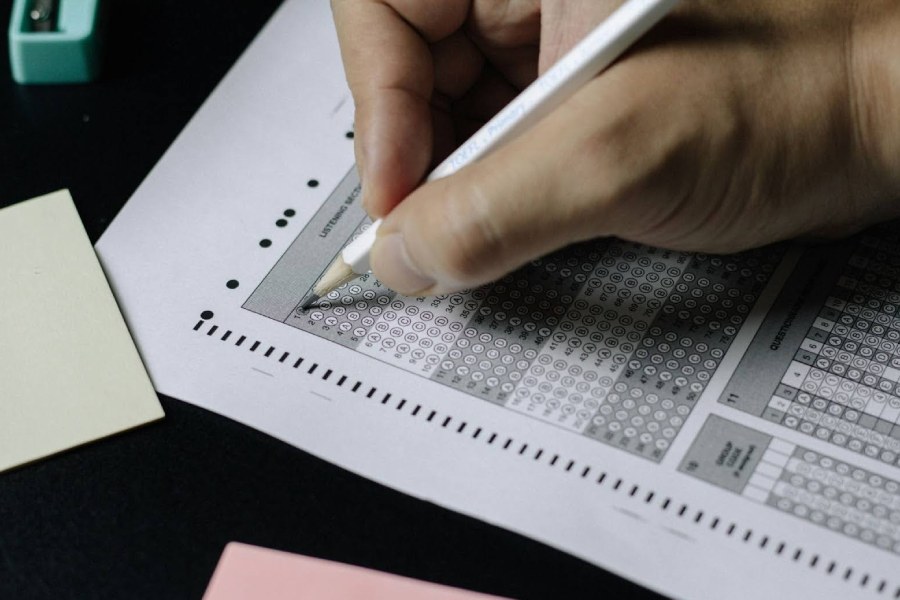
Winston Churchill once said,
“Success consists of going from failure to failure without loss of enthusiasm.”
Test-taking skills are essential for success in academic and professional pursuits, as they enable individuals to demonstrate their knowledge, understanding, and problem-solving abilities under pressure. Beyond simply recalling information, effective test-taking skills involve critical thinking, time management, and strategic decision-making. Proficiency in these skills not only leads to better performance on tests but also prepares individuals for real-world challenges where quick thinking and decision-making are necessary.
What does ‘good test-taking skills’ look like?
Moreover, strong test-taking skills can boost confidence and reduce test anxiety, allowing individuals to perform to the best of their abilities. Ultimately, mastering test-taking skills is not just about achieving high scores; it’s about equipping oneself with the tools and mindset needed to navigate through various assessments and excel in academic, professional, and personal endeavours. Here are some characteristics of a good test taker:
- Preparation: Good test takers are typically well-prepared. They study consistently, review materials, and understand the content that will be tested.
- Time Management: They manage their time effectively during the test, pacing themselves to ensure they have enough time to answer all questions thoroughly without rushing.
- Understanding Instructions: They carefully read and understand the instructions provided for each section of the test, ensuring they know what is expected of them.
- Focus and Concentration: They maintain focus throughout the test, avoiding distractions and staying concentrated on the task at hand.

- Critical Thinking Skills: Good test takers can analyse questions critically, identify key information, and apply problem-solving strategies to arrive at the correct answers.
- Confidence: They approach the test with confidence in their abilities, which helps them remain calm and composed even when faced with challenging questions.
- Adaptability: They are adaptable and can adjust their strategies if needed during the test, such as skipping difficult questions to return to later or changing their approach if a particular method isn’t working.
- Effective Test-Taking Strategies: They use effective test-taking strategies, such as eliminating obviously incorrect answer choices, guessing strategically when necessary, and answering easier questions first to build momentum.
- Managing Test Anxiety: Good test takers are able to manage test anxiety effectively, employing relaxation techniques or positive self-talk to stay calm and focused during the exam.
- Reviewing Answers: They take the time to review their answers before submitting the test, double-checking for any errors or oversights.
Strategies for test taking and developing test taking skills
These characteristics contribute to success in test-taking by helping individuals perform to the best of their abilities under pressure. Improving test-taking aptitude involves a combination of strategies focused on preparation, mindset, and skill development. Here are some test-taking tips to help:
- Understand the Test Format: Familiarise yourself with the format of the test you’ll be taking. Knowing the structure, types of questions, and time limits can help you prepare more effectively.
- Develop Effective Study Habits: Create a study schedule and stick to it. Break down the material into manageable chunks, use active learning techniques such as summarising, teaching others, and practising with sample questions.
- Practice Regularly: Practice is essential for improving test-taking skills. Use practice tests, past exam papers, or online resources to simulate test conditions and build confidence.
- Learn Test-Taking Strategies: Familiarise yourself with test-taking strategies such as time management, process of elimination, educated guessing, and prioritising questions.

- Improve Time Management: Practice time management techniques during your study sessions and practice tests. Learn to allocate time effectively to each question or section, and don’t spend too much time on difficult questions.
- Stay Healthy: Get enough sleep, eat well, and exercise regularly. A healthy body and mind are essential for optimal cognitive function and performance during tests.
- Manage Test Anxiety: Develop relaxation techniques such as deep breathing, visualisation, or mindfulness to manage test anxiety. Positive self-talk and focusing on past successes can also help boost confidence.
- Seek Feedback: Review your practice tests and seek feedback from teachers, tutors, or peers. Identify areas of weakness and work on improving them.
- Stay Positive: Maintain a positive attitude towards tests and challenges. Focus on your progress and growth rather than dwelling on mistakes or setbacks.
- Review and Reflect: After taking a test, review your performance objectively. Identify what worked well and what didn’t, and adjust your study and test-taking strategies accordingly.
By implementing these exam-taking strategies consistently and adapting them to your individual needs, you can improve your test-taking aptitude and achieve better results on exams. Remember, being a good test taker isn’t just about knowing the material; it’s also about staying calm, focused, and confident during the exam.
We close today’s essay with one more quote by a thought leader.
“The difference between a successful person and others is not a lack of strength, not a lack of knowledge, but rather a lack in will.” – Vince Lombardi
Aren’t you glad you read this essay? We sure are! Reading is such an intrinsic part of becoming a good student, a good manager and even just a great conversationalist! When you read, you not only expand your thought process but also add new words, phrases and facts to your knowledge bank, without even realising it! At Takshzila, we believe in helping our learners develop their skills from every angle, so that when they leave, their main takeaway is not just ‘tips and tricks’ or ‘how to solve questions’. We are about more than that.
This is why we have this ongoing series of essays for you – everything from starting preparation to creating a realistic time management plan and a lot of steps in between. Keep coming back to takshzila.com for more essays. Tell us if you’d like us to write about something specific. And if you liked this essay, share it with friends, fellow students or colleagues! You never know who might be in need of just this exact idea.
To connect with us, and to stay connected, find us on Instagram, Facebook, YouTube, LinkedIn and Telegram. To say hello, write to hello@takshzila.com.

Leave A Comment